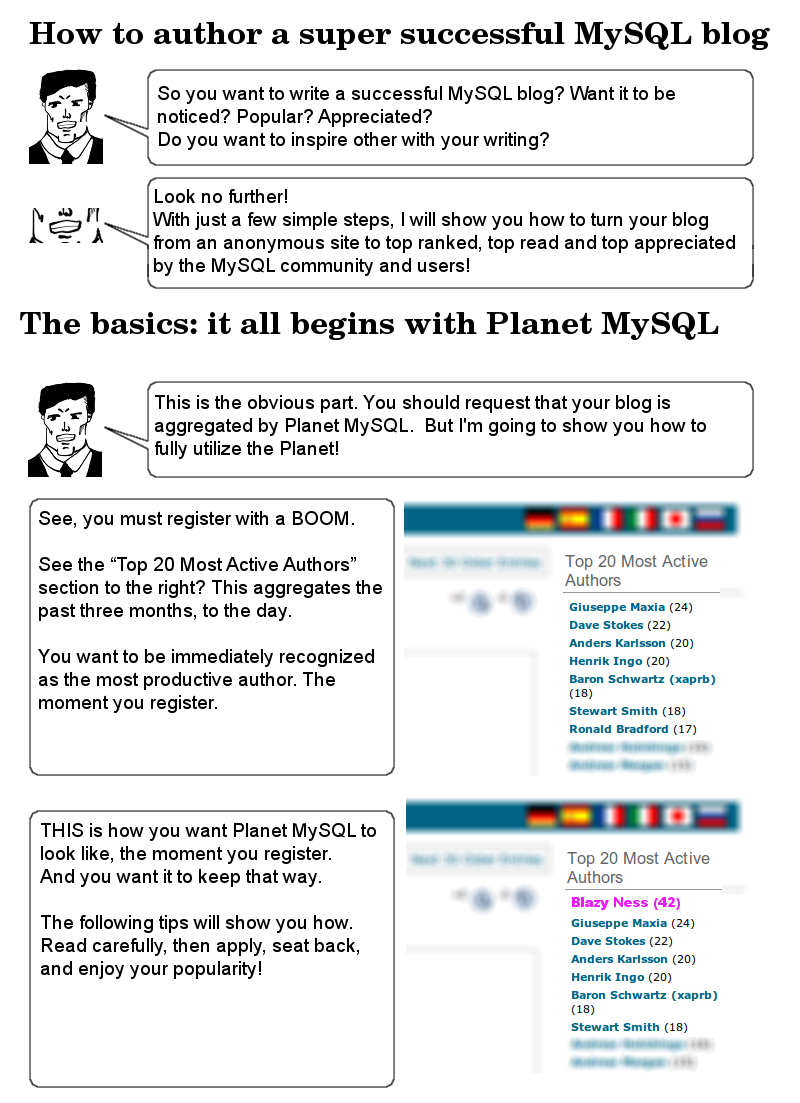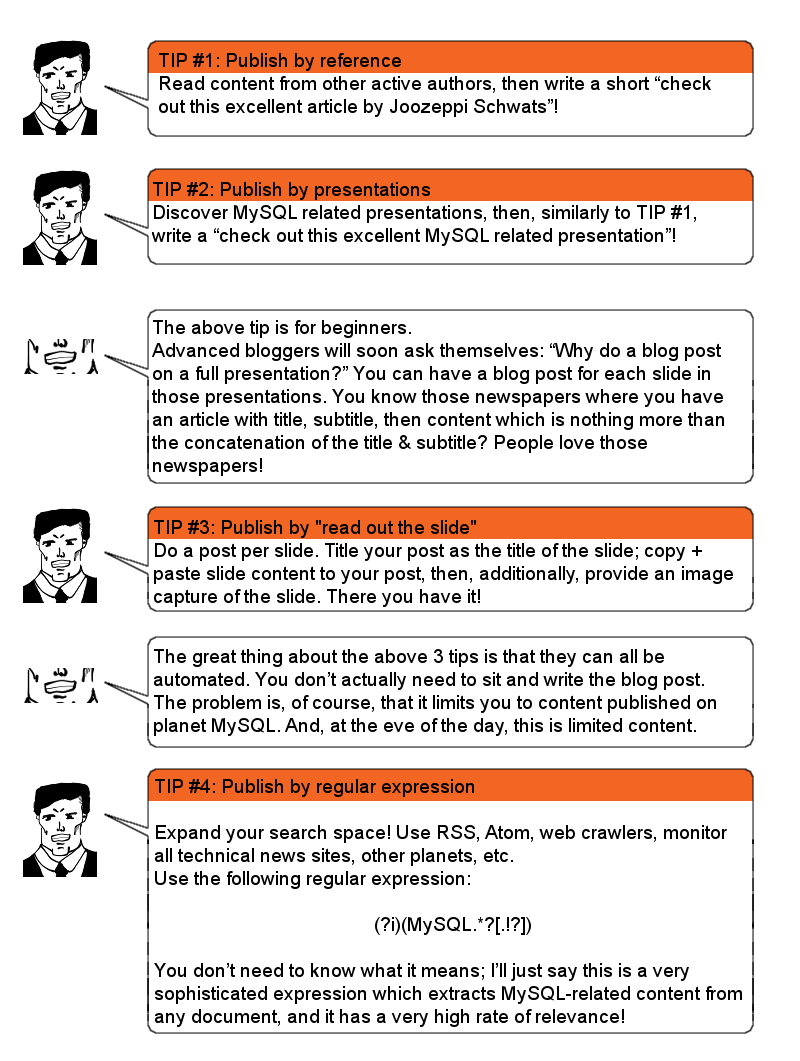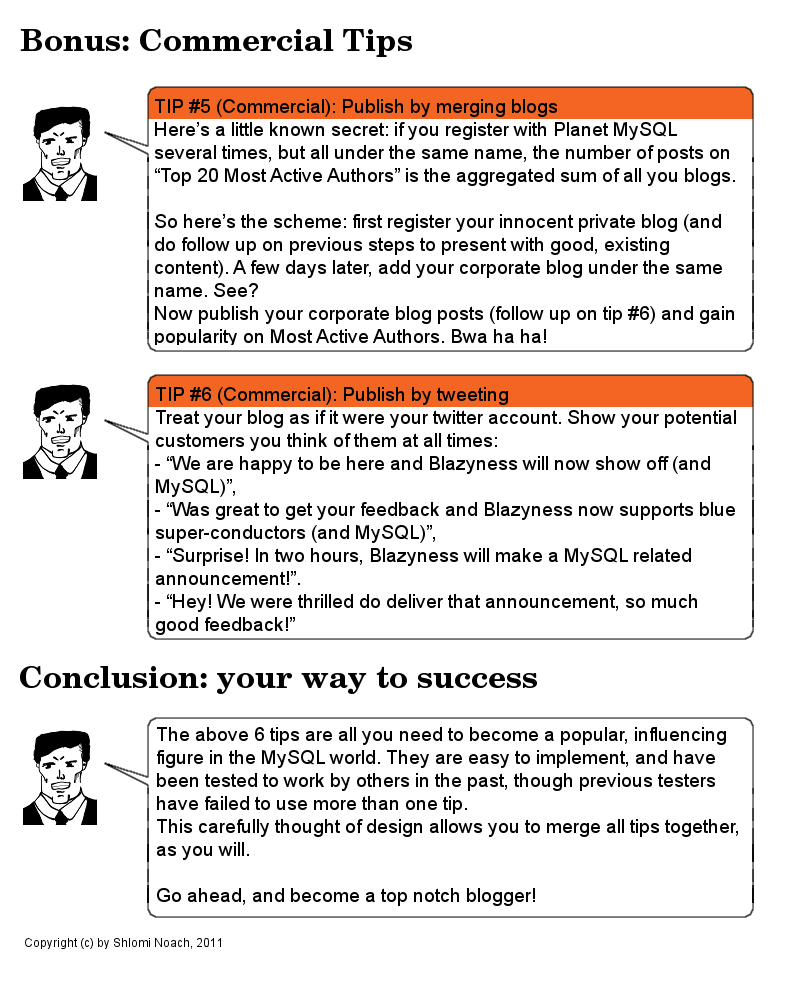They both look the same, have roughly the same use. Nevertheless, they differ in many respects. I’ll note the difference, and note a few pitfalls and peculiarities.
Range
TIMESTAMP starts with the epoch, ‘1970-01-01 00:00:01’ UTC and ends with ‘2038-01-19 03:14:07’ UTC. This is all very nice today, and may actually hold up till our retirement, but the younger readers may yet have to deal with the Bug2K+38™, certain to arrive.
DATETIME starts with ‘1000-01-01 00:00:00’ and lasts up to ‘9999-12-31 23:59:59’. More on that later.
In respect of range, your current event logs may well use a TIMESTAMP value, while your grandfather’s and granddaughter’s birth dates may require DATETIME.
In general I would suggest that anything that relates to now, can be a TIMESTAMP. A new entry is added? It is added now. It can be represented by a TIMESTAMP. Anything has an expiry time of a few minutes, perhaps a few days or a month? You’ll be safe using it up till late 2037. Anything else had better use a DATETIME. In particular, dates relating to issues such as birth, insurance, the market etc. fall into this category.
History, however, does not even hold up with DATETIME. Rome fell long before MIN(DATETIME). You will have to manage your own. Not even YEAR will help you out.
Storage
TIMESTAMP makes for 4 bytes. DATETIME makes for 8 bytes. Now that we have this behind us, let’s see why. Continue reading » “TIMESTAMP vs. DATETIME, which should I be using?”


